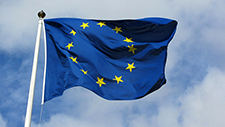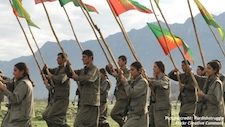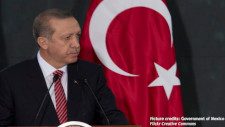Svante Cornell: EU har rätt svar men på fel fråga
Svante E. Cornell
Östra partnerskapet skapades 2009 efter Rysslands invasion av Georgien, på basis av ett svensk-polskt förslag. Tanken var att skapa ett instrument för att föra de sex länderna i Östeuropa och södra Kaukasien närmare EU – utan att för den skull ge dem ett perspektiv till EU-medlemskap. Förutsättningarna var därför annorlunda än när Centraleuropa och Baltikum skulle integreras i EU på 1990-talet: då fanns både stöd och ett löfte om medlemskap när länderna uppfyllt relevanta kriterier. Idag saknas det senare.
Länderna österut erbjuds därför hjälp att genomföra svåra och omfattande reformer, men utan att belöningen för reformerna – medlemskap i klubben – finns på agendan.
Därtill finns ytterligare en avsevärd skillnad: på 1990-talet gick EU och NATO i tandem och hade en närmast uttalad arbetsfördelning: EU sköter de ”mjukare” frågorna, medan NATO tar hand om den hårda säkerhetsproblematiken. Just löftet om NATO:s artikel 5 var för många länder det viktigaste argumentet att genomdriva de nödvändiga reformerna.
Related Publications
-
ISDP Annual Report 2023
ISDP’s Annual Report for the year 2023. We look back on 2023, a year in which tensions and conflicts captured the strategic space in ISDP’s focus areas, making headlines around […]
-
Promise And Peril In The Caucasus
America’s national security bureaucracy separates the Caucasus and the Middle East into different bureaus, with Central Asia in yet another office. This is part of the reason the U.S. has […]
-
What might 2023 bring for the security situation in Europe in view of the ongoing rivalry between the superpowers, the war in Ukraine and the economic crisis?
The ramifications of the era-defining year that was 2022 will continue to be felt in 2023 – from the return of war to Europe and its multifaceted aftermath (social, humanitarian, […]
-
Turkey’s Problem Isn’t Sweden. It’s the United States.
The issue isn’t what Sweden says or does but what the United States does or fails to do on the ground in Syria that matters for Turkey’s national security interests. […]
-
TURKISH QUAGMIRE: WHY TURKEY BLOCKS SWEDEN’S NATO ACCESSION
Turkey was bound to have issues with Sweden and its pro-Kurdish stance, and singled out Sweden because of its longstanding commitment to Kurdish aspirations. However, it is the continued US […]




